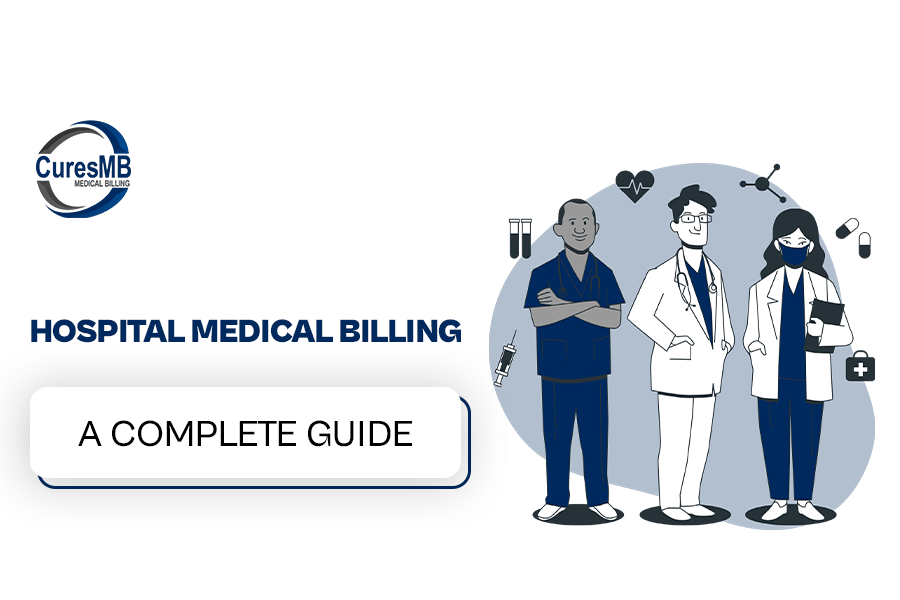
Medical bills are one of the most stressful parts of healthcare, for both patients and hospitals. Whether it’s an unexpected ER visit, surgery, or follow-up care, understanding hospital medical billing is essential to avoid confusion and financial strain. For providers, accurate billing keeps revenue flowing. For patients, it ensures fairness and transparency.
Hospital medical billing is the process of recording, coding, submitting, and managing claims so that hospitals are reimbursed for services provided to patients.
This involves translating medical diagnoses and treatments into standardized codes, sending them to insurance providers, and billing patients for any remaining balance.
The hospital billing process has several steps, and each one must be accurate to avoid claim denials or delayed payments:
Pro Insight: Hospitals that use advanced billing software and expert coders see fewer claim denials and faster reimbursements.
Hospital bills are not just a “single number.” They include several layers of charges:
Fill out the form below and we’ll contact you shortly.
Hospital Billing | Clinic Billing |
Covers complex services (e.g., surgeries, ER visits) | Focuses on routine care (e.g., checkups, vaccinations) |
Uses UB-04 forms | Uses CMS-1500 forms |
Longer claim cycles (45-90 days) | Faster payments (14-30 days) |
Step | What Happens | Patient Impact |
Registration | Insurance info collected | Verifies coverage upfront |
Charge Capture | Services, supplies, and tests documented | Transparent record of care |
Coding | Assign ICD-10, CPT, DRG codes | Impacts insurance approval & costs |
Claim Submission | UB-04 sent to payers | Determines insurance payment |
Payment Posting | Insurance pays, patient bill generated | Explains out-of-pocket costs |
Follow-Up | Denials corrected, balances collected | Offers assistance/payment options |
Case Study: NYC Hospital reduced denials by 22% using AI-powered claim scrubbing.
Hospital medical billing is complex but essential. For providers, it ensures financial stability. For patients, it provides transparency into healthcare costs. With rising medical expenses, knowing how billing works and where to find help can make a huge difference.
Cures Medical Billing helps hospitals streamline billing, reduce denials, and support patients with financial assistance options.
Need help with hospital medical billing? Contact our experts today to simplify your billing process and improve revenue cycle management.
Hospital medical billing is the financial process hospitals use to get reimbursed for patient care, including coding diagnoses, submitting claims, and billing patients for balances not covered by insurance.
Eligibility depends on income, household size, and hospital policy. Nonprofit hospitals are legally required to offer financial assistance.
Request a payment plan, financial aid, or hardship assistance. Nonprofit hospitals are required to offer options for qualifying patients.
Most hospitals use the UB-04 claim form (also known as CMS-1450) to submit billing information to insurance providers.
Frequent mistakes include coding errors, missing documentation, duplicate charges, and insurance mismatches, which can lead to claim denials.
Most hospital bills are generated within 30–60 days after insurance processing, but delays can occur if claims are denied or need corrections.
You can contact the hospital billing department or hire a medical billing advocate to review charges and identify errors.
Discover Cures Medical Billing Services Across Different States
FL
NY
ML
CO
NJ
AZ
TX
CA
WA
We are a team of national medical billing service experts based in Astoria, NY, committed to providing ongoing value to our customers. We leverage technology and implement best practices to provide high-quality and cost-efficient medical billing solutions from domestic locations, enabling customers to achieve their business goals. Cures Medical Billing is the best option for any medical billing needs.
Medical billing around Astoria, NY, and beyond is our core competency and our specialists will efficiently manage all your billing needs. Our medical billing specialists have over 12 Plus years of experience with all security technologies to ensure data integrity for our customers. Using our medical billing service, anyone can make their medical billing task less resource-consuming.
Efficiency & precision in healthcare financial management with Cures Medical Billing, your trusted partner for smarter, faster, and more accurate billing solutions.
This site uses cookies. Read our Privacy Policy